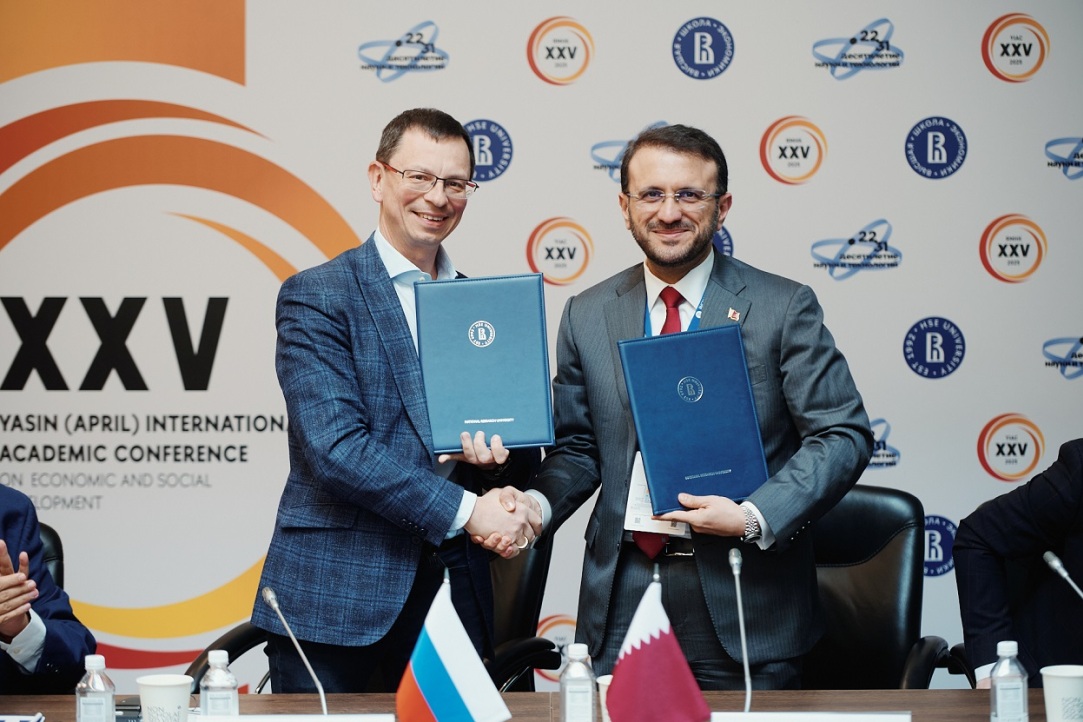Nikita Anisimov
Rector, HSE University
Dear colleagues,
This year, HSE University is marking a special milestone as we host the 25th Yasin (April) International Academic Conference on Economic and Social Development. Today, the academic community is tasked with working toward the achievement of Russia’s national development goals, furthering priority areas of academic and scientific inquiry, and ensuring our country’s technological leadership. The research studies and reports that will be the focus of discussion at this year’s Conference are certain to make a significant contribution toward meeting these critical objectives.
The April Conference is one of our country’s premier academic and scientific platforms for demonstrating breakthrough ideas and developments in the fields of economics, social policy, human capital development, and digital technologies. The Conference has traditionally evoked great interest among the academic community. Just this year, we received 1,086 applications to participate, from among which the Programme Committee has selected 381 reports representing the best, most rigorous work that scholars from both Russian and international institutions have to offer in their respective thematic fields of inquiry.
It gives us great pleasure to welcome the best researchers from across Russia’s diverse regions and, indeed, from around the world to join us for this milestone event at HSE University. I am confident that this year’s Conference will offer participants highly stimulating discussions on a range of diverse topics as well as highly productive, results-oriented collaborative work. I wish all of you great success and inspiration from fresh ideas!
Fuad Aleskerov
Chairperson, Programme Committee
Dear participants of the 25th Yasin (April) Conference,
It is a great pleasure to welcome you to this year’s 25th Anniversary Yasin Conference. For 20 years, I worked on this annual event as deputy chair of the Programme Committee under the chairmanship of the late Evgeny Yasin. I am now continuing that work, but this year as the chair of the Programme Committee. When I started, it was the 4th or 5th Conference, and there were only 195 speakers. Then, the number of speakers rose to over 1,000. Over these years, the Conference has truly become one of Russia’s best academic conferences.
This year, we made the decision to concentrate more on the academic component of the Conference. Accordingly, we have reduced the number of topics represented at the Conference, as well as the number of thematic sections and discussion sessions under each section.
We took a very serious approach to reports’ selection, and, moreover, following international standarts limit the number of reports presented in the sessions by scholars from the same institution. However, I am proud to say that we have met our goal of preserving HSE University’s longstanding traditions of rigorous scholarship with a focus on high quality, fundamental research, and interdisciplinary studies.
Yet one more critical feature of the Conference is the competition among young scholars presenting reports from Russia’s regions. Given the importance and prestige of the Conference, it is imperative that we recruit participants not only from the capital, but also promising young researchers from across the country in order to give them the opportunity to present the findings of their work.
We received many genuinely interesting applications to present reports and have selected what we believe to be the best. I am certain that all scholars taking part in this year’s Yasin (April) Conference will enjoy the opportunities to find associates, encounter new ideas, and find inspiration for their future academic endeavors.
I am pleased to wish all of you a successful Conference, interesting reports, and fruitful discussions driven by wide-ranging questions and thought-provoking comments!
News






